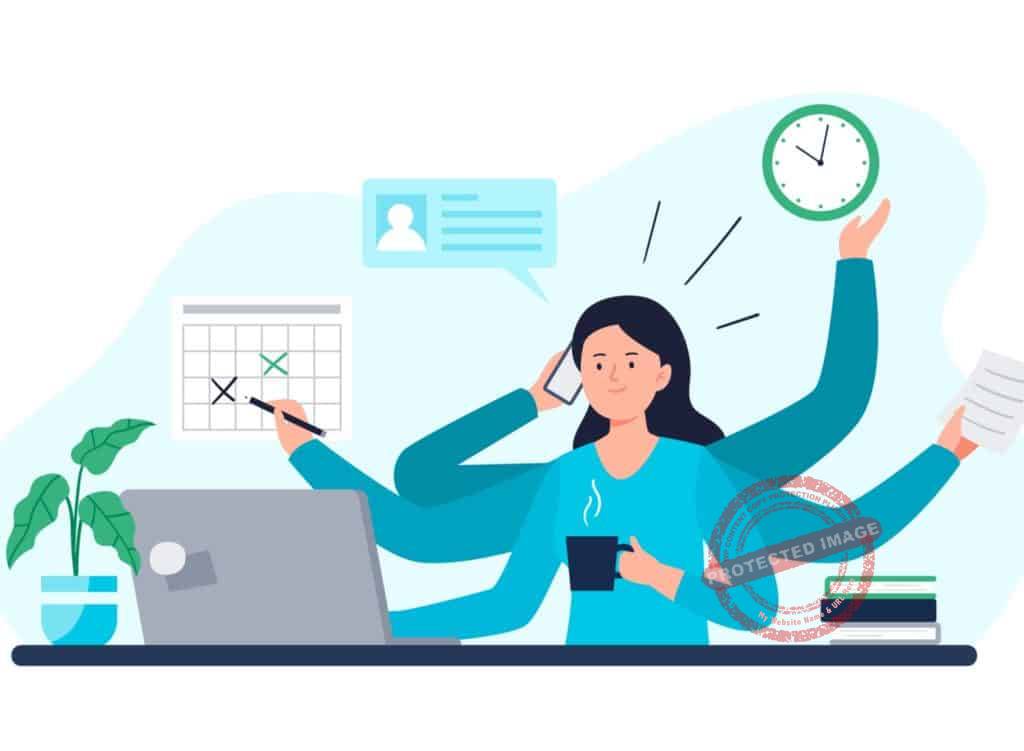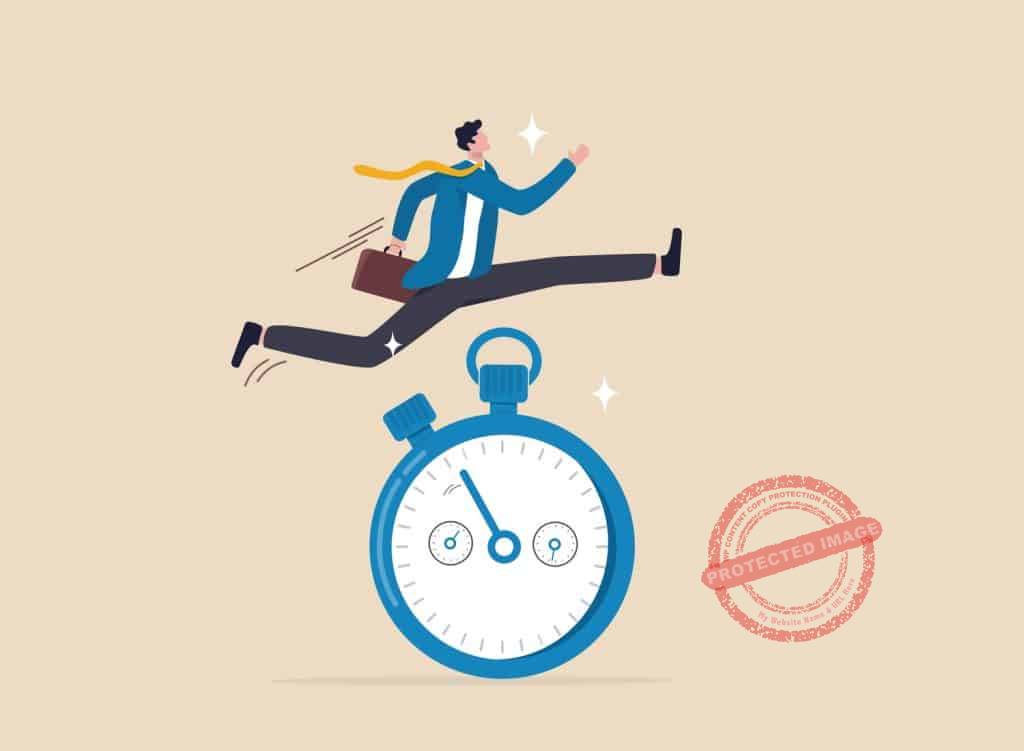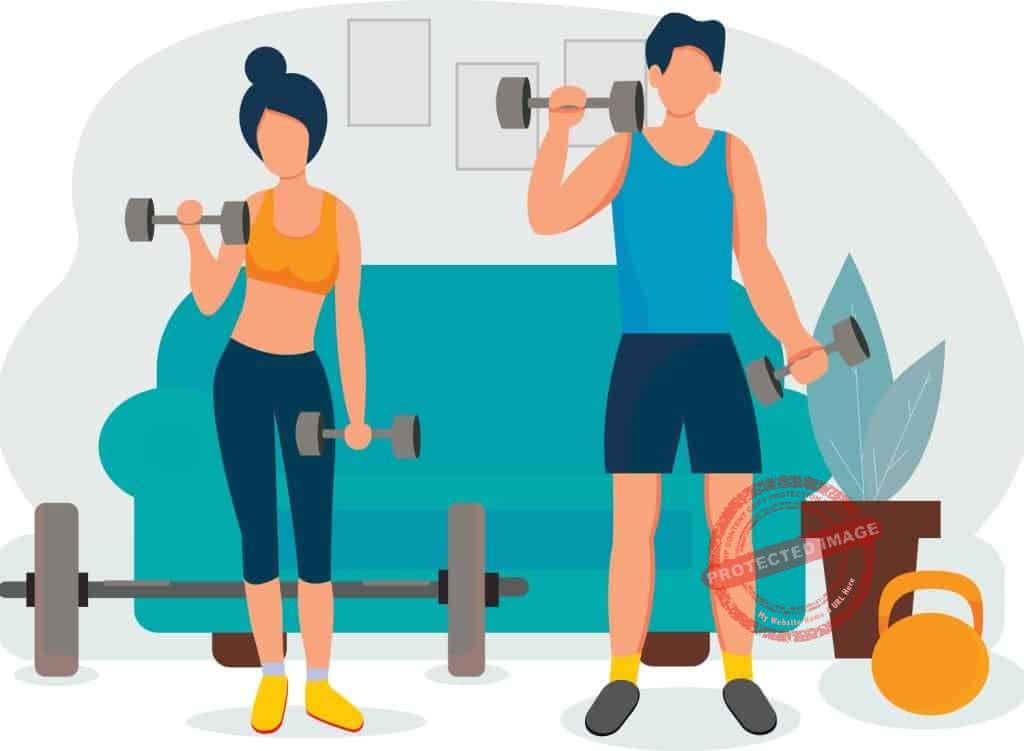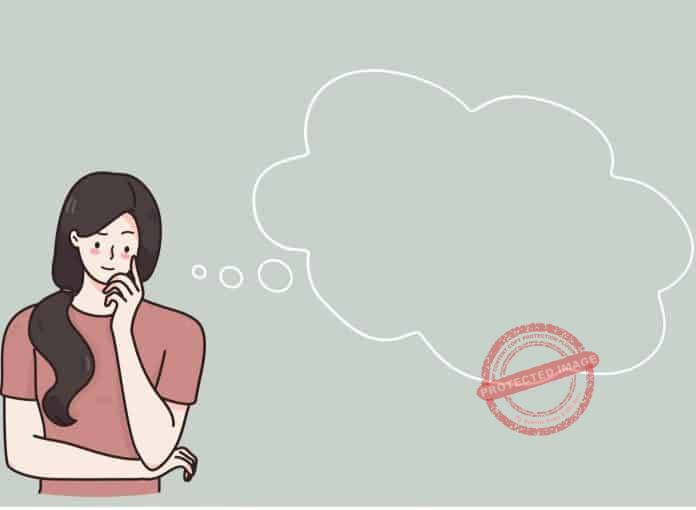Do you want to improve memory retention because you always find it difficult to remember vital information?
Has this Impacted your business, professional, and personal life negatively, and you’re looking for ways to improve?
“Do you remember…?”
This question sets your memory power in motion and puts your memory retention capabilities to the test.
If your memory retention ability is poor, you will find that you struggle always to recall past events and experiences.
This can be quite challenging because the trajectory of our lives revolves around taking in information and knowledge.
Hence, if you find it difficult to retain valuable information and knowledge, navigating through life might be tougher than necessary.
Fortunately, just as you can improve any skills, you can improve memory power and retention as well.
With the right practices, lifestyle and training, you would find your brain functioning at the optimum capacity, and your memory retention improved.
In this unique blog post, we share some effective tips for improving memory retention.
All you need to do is read through, grab the points, and put them to practice.
So, without further ado, let’s get to it.
Understanding What Memory Retention Is

Before we dive into the nitty-gritty of how to improve your memory retention, it is important that we first understand what memory retention is.
The human memory is a part of the human central nervous system.
This is where information is stored and retrieved in the brain.
Retention, on the other hand, refers to the process whereby information is held for future use.
Putting them together, you could say that memory retention is your ability to remember information over a specific time frame.
That means your memory has the power to store information or experiences from the past and bring them up for you when you need them the most.
Having the brain working to increase your memory retention abilities is an essential factor in learning.
It is also what makes it possible for you to say things to people and remember them later or recall the things people tell you.
When you prepare for an assessment or interview, you depend on your retentive memory capabilities to bring back what you have learned at the due time.
Some types of memory that have been identified are:
Short Term Memory
This is what makes it possible for us to retain information temporarily.
In this memory, the information stored does not stay for a long time.
It is only held there for the short while for which we need that information.
With information stored here, a little distraction can make you lose it.
Long Term Memory
While the information stored in a short-term memory stays there for a short period (usually seconds), the one stored in your long-term memory can last longer.
It would usually last for days, weeks, years, or sometimes even a lifetime.
This is the one that generally holds the information you get through learning and your skills, talents, and abilities.
Sensory Memory
If the short-term memory holds information for a short time, then sensory memory is even shorter.
It is the one responsible for the perception from the human senses.
That means what you perceive through smell, sight, hearing, touch, and taste drops on this memory first, albeit for a concise time period, before going to the short-term memory.
Getting the basic idea of memory and memory retention gives you the background information you need to process/fully understand the concept of improving memory retention.
Benefits of Having a Good Memory Retention

Truth be told, our idea of good memory retention might appear to be a bad idea.
This is because sometimes, we are trying to forget ugly and traumatic past experiences.
We might also think it is better to forget certain memories.
This is especially if they caused us pain instead of joy.
These are some negative effects of remembering past events or occurrences.
However, there are more positive benefits of having a good memory.
In short, when you have a good memory, the quality of your life increases.
Not only that, you find that you have greater efficiency in the things you do.
See if you can relate to some of these outstanding and undeniable benefits of having a good retentive memory.
Learning is Easier
The best students or people with outstanding performances in all fields of life are people with impeccable memory retention capacity.
This helps them gather valuable information/knowledge that enhances their success in every field of life.
Likewise, if you have a knack for learning new things, such as learning a new language, you will find this very beneficial.
Reduced Anxiety
Having difficulties remembering important information or keeping essential items can be a great source of anxiety and worry.
However, with good memory retention capacity, you can escape these anxieties.
Excellence
It goes without saying that easy learning would result in better performance in tests, assessments, and examinations.
This means that you’ll most likely have better grades and achieve excellence than someone whose memory retention isn’t at the same optimal level.
More Efficiency and Productivity
Another benefit of good retentive memory is that you are likely to be more efficient and productive in whatsoever you do.
Think about the amount of time and energy expended when one needs to remember something critical and cannot.
You will find that people with poor retentive memories would spend more time completing tasks and assignments.
On the other hand, if you have good memory retention, you have the advantage of completing your job faster and more effectively.
This is because you don’t spend time trying to recollect or relearning the processes to handling your task.
You Learn from Past Experiences
Experience, they say, is an excellent teacher.
Some even tell you that it is the best teacher.
Sometimes, we remember past mistakes, either the ones made by us or others.
When we do, we see lessons from there.
These past events or experiences might show us the right path to follow.
It could also show us the wrong ones we need to avoid.
Similarly, we might also have good memories of great events or experiences in history, and these might motivate or excites us.
Imagine we do not have the good retentive memories to remember these past events, be it good or bad.
There is no way we can gain from the lessons they offer.
Improved Self Confidence
Think about it; no one wants to be recognized or regarded as a dullard or unintelligent person.
Sadly though, having a forgetful memory is always often related to that.
If you forget things easily, people might start to think that you are not smart.
They might also begin to think that you are a failure.
This would kill your self-confidence.
Having good memory retention, on the other hand, does just the opposite.
It helps you to stand out among your peers.
Not only that, it gives you the confidence to speak up and make contributions when you have to.
Moreso, it can win you the respect of others.
It Helps to Keep Culture and Tradition Alive
Many of the integral components and aspects of tradition and culture are passed on from generation to generation.
Try to recall some of the songs or games your parents taught you while growing up.
You probably also passed these on to your children while training them too.
Well, chances are your kids will continue the tradition with their own progeny.
That is the exact way in which cultural values and traditions are preserved for many years.
This is only possible, all thanks to retentive memories.
To be truthful, many of these things cannot be found online or from other sources.
How happy you should be that you have good memory retention.
This helps you to remember these and able to pass them on.
It Helps with Focus and Concentration
The next thing the mind does when struggling to remember something and cannot is that it starts drifting away.
Whether you are undergoing a learning process or on your desk at work, having trouble with memory recall can get you distracted.
And trust us, these distractions are everywhere.
However, when you have good memory retention, it can help you be better focused on tasks and avoid distractions.
It can also improve your concentration level.
It Makes you a Great Salesperson.
If you are a salesperson or are planning a sales and marketing career, there is good news for you.
Working on improving your memory retention would increase your chances of success in this field exponentially.
One of the things people tend to forget easily is the names of people they’ve met probably just once before in life.
But if you have trained your brain and senses properly to remember this, you are on track to becoming a great salesperson.
You Thrive in the Most Difficult Circumstances
Did you know? One of the reasons why some people underrate the importance of having a good retentive memory is because they feel the information is always available.
For example, you might not feel the need to commit certain processes for handling tasks or solving problems in your business because you feel this information is available online.
But then, what happens when you are stuck in a place without good internet access, and you need to solve a problem using that process.
In such situations, the problems become critical, and your professionalism/capabilities become questionable.
However, when you have good memory retention, you are not limited in your abilities by the situation you find yourself in.
Instead, you thrive even in the most difficult circumstances.
Overall, excellent retentive memory benefits are too numerous to mention and cannot be overemphasized.
This is because memory retention is closely tied to every aspect of life.
Therefore your memory retention capacity will either impact those areas positively or negatively.
Factors Inhibiting Memory Retention; Why do you Forget Things Easily?

Could it be that you find it difficult to recall things, events, or experiences?
It might be after a long period of time, or more worryingly, just in a short time frame.
Well, this is not really something out of the ordinary, and you do not have to punch yourself too hard if it happens to you.
The truth is that we all experience forgetfulness sometimes; the only difference is that it is in varying degrees.
However, if you find that yours appears too serious and interfering with your daily activity and productivity, then it might point to a more serious underlying problem.
However, before we talk about the various ways you can improve memory retention, let us first see why remembering things can be such a challenge for you in the first place.
Ineffective or Failed Encoding
In this sense, encoding is the process of getting certain information into our memory space in the first instance.
This is actually the first step towards memory retention because this is when the information you might need to recall later is stored.
As a matter of fact, this is one reason why you might find it difficult to recall information or forget things easily.
It could be that you didn’t properly receive/store the information at first.
Some reasons for this could be a lack of focus and attention when the information was being passed or distractions.
Also, it could be that we did not properly encode certain information because we feel that they are not as important or relevant as other details we prioritize.
When needed to recall such information or bring them back to mind, it is difficult to pick them up, as they are not there.
Retrieval Failure
While failure in encoding occurs when the information is not stored properly, failure in retrieval happens when you cannot retrieve the stored information.
Usually, some cues help in retrieving already stored or encoded information.
Most times, you recall information is because some cues aid the recalling/recovering process.
These cues pointed you to storage and enhanced your remembrance.
However, when these cues are absent, it might be difficult to recall information.
Decay of Information
The ability of the memory to retain information is not in any way infinite.
That means that scientifically, there is an extent or length of time to which your memory can store information before it begins to fade.
This process is referred to as information decay.
Psychologists agree that keeping a piece of information intact requires constant remembrance or rehearsals.
Therefore, if you fail to revisit some pieces of information regularly, they will ‘decay’ or fade away over time, even if they were stored in the long-term memory.
Making Efforts to Forget, Consciously or Unconsciously
Some people refer to this as motivated forgetting.
This is most often done with information or past experiences that we do not wish to remember or recall.
It could be that they were troubling or traumatic experiences.
Or the memory is considered to be of no use to use anymore.
As such, we might suppress it deliberately by failing to discuss it or remember it, and it fades away.
Alternatively, there is an unconscious effort at forgetting such memories or information.
This is done by repressing them.
This comes naturally as those memories are not talked about or brought back to mind.
Hence, it leads to you forgetting them.
Problem of Interference
Interference is also another reason for poor memory retention.
This happens when there is an interference between new information and already existing information.
It could be that a newly learned information interferes with a previous one (retroactive interference) or an old one interfering with a new one (proactive interference).
Because our memory can only store a limited amount of information, it might cause competition between new and old memories on which one is a priority.
This leads to forgetting one of such information in favor of the other.
Now to answer the big question; how to improve memory, here are some simple steps.
How to Improve Memory Retention – Simple Things you can do Starting Now

Maybe you have heard stories of people who can glance at a page of a book, close it back and remember everything they see.
Or you might have seen kids or adults who tend to remember the order of appearance of objects or items no matter how many they are.
You might be very quick to dismiss these as geniuses and simply think that such excellent memory retention is unachievable.
It is noteworthy that some of those stories might be exaggerated.
But of course, there are people with excellent memory retention.
However, much of it is not extraordinary.
Rather, it is a skill that can be learned, relearned, and improved.
We have carefully studied what has helped many of these to be successful in developing the skill of memory retention.
And we are going to share our findings with you.
Here are some practical steps you can take to improve memory retention, even starting today:
Exercise your Memory by Learning Something New
It is actually very possible to expand or widen your memory capacity.
But this doesn’t happen automatically; neither does it happen magically.
To improve your memory retention, you need to exercise your memory regularly.
This could be likened to exercising your body to grow stronger.
To do this, you would need to work out the muscles, not just with constant weights but also increase them as you go on.
Also, expanding your vocabulary and knowledge base can help you flex your “memory muscles.”
You can learn new words in the dictionary, a new language, a new skill, an instrument, e.t.c.
This exercise will improve your memory retention.
Work on Improving Focus, Concentration, and Attention
Among the things that have been proven to improve memory retention are focus and attention.
That is what makes the difference between information remaining in the short-term memory, getting lost, or holding it in the long-term memory for long.
When you take in information and do not focus your attention fully on it, your chances of retaining it are slim.
However, with full concentration, focus, and fewer distractions, your memory can retain things better.

Sleep Well
A good night’s sleep or constant siestas can actually improve your memory retention drastically.
If you pay close attention, you might have noticed that depriving yourself of good sleep impairs your ability to concentrate, process, or store vital information.
Having a good sleep thus can help you in the process of encoding information.
It can also help you with retrieving them.
This is because you wake up with a sharper mind and better learning abilities.
So do not overwork yourself, either on the job, running a business, or even studying to pass an exam.
Create time to sleep.
Rehearse and Repeat out Loud
Repetitions have also proven to be very effective in remembering information and retrieving them easily when needed.
Therefore, when you first receive a new piece of information, try to write it down.
Afterward, repeat it out loud.
This helps you to record it mentally and make it more likely to stick.
Do this exercise repeatedly and see how it can help you in training and improving your memory retention.

Limit Multitasking
You might be surprised that there could be a disadvantage to multitasking when almost every recruiter today requires this ‘skill’ on an applicant’s CV.
While multitasking has its merits, one of which is to ensure higher productivity and flexibility, the truth is it doesn’t help with memory retention.
Like we learned earlier, your memory is not infinite, and there is just an extent to what information it can store and process at once.
When you multitask, you’re giving your attention to many things at once, and this supposed strength could turn out to be a weakness.
Therefore, try to limit your multitasking, especially when performing tasks that require deep focus and concentration.
This is so that you can pay attention to details and store information appropriately.
Consequently, improving your memory retention.
Create a Mental Picture or Make Associations
Another practical way many have improved memory retention is making associations or creating a mental picture of what they want to remember.
When such people receive new information they deem important, they immediately combine it with other memories.
These could be a particular smell that comes with that information, a sound, an action performed when the information was passed e.t.c.
For example, some students have found it beneficial to listen to certain music when studying certain courses and associate the subject with the lyrics or sounds.
This process is referred to as information chunking.
Interestingly, this has helped in improving their retentive memory.

Get all your Senses to Work
While working on improving your memory retention, it is also beneficial to task all your senses in the process.
Studies and experiences have shown that learning or absorbing new information while utilizing the whole senses of the body enhances retention and remembrance.
So the next time you are taking in new information, try to involve all your senses.
That would be sight, hearing, smell, touch, and, if possible, taste.
Doing this would increase the chances of you being able to retrieve such information when necessary.
Don’t Abuse Drugs or Alcohol
Some forms of memory loss or difficulty retaining memory and information result from a health problem affecting the nerves.
When two or more nerve cells are connected, this is known as synapsis.
This aids in transferring information.
However, certain habits and activities might damage the synapsis.
Thus, making memory retention difficult.
Some of these habits are drug abuse and chronic alcoholism.
More so, prolonged exposure to toxic wastes or other harmful chemicals can also damage the synapsis and lead to poor memory retention.
Hence, to improve memory retention, avoid drugs, alcohol, or substance abuse.

Do Physical Exercise
Just as exercising the brain improves memory retention, physical exercises also help.
When you exercise, oxygen is pumped to the brain at an increased rate, which keeps you active mentally.
Also, a lack of regular exercise is responsible for many health problems like high blood pressure, diabetes, stroke, e.t.c.and impairs memory retentive abilities.
Therefore, exercising regularly reduces the likelihood of such health challenges.
It also keeps your brain in good shape and hence improves your memory retention.
Some of the exercises you can engage in include meditation exercises, yoga, walking, jogging e.t.c.
Try Mnemonics
If you are a student or once was, you might be familiar with this.
This is often used to assist people in remembering vital information.
It involves associating that information with other information that you are very familiar with.
This might involve using acronyms to remember a list of items, using sentences to recall a difficult word, or even singing songs or jokes to remember information.
For many years, students have deployed this tactic in aiding memory retention, and you can too.

Maintain a Healthy Lifestyle
It is generally good to maintain a healthy lifestyle, especially our eating habits.
Consider choosing diets containing vitamins, antioxidants, anti-inflammatory substances, and low sugar and carbohydrates.
These choices of foods can help your brain function properly and greatly improve its ability to retain information and memories.
How to Improve Memory Retention In a Nutshell

Are you a genius? Excellent!
But if you are not, you do not need to lose heart.
This is because you do not need to be a genius to have a good retentive memory.
Memory retention is very effective and vital in every aspect of life.
Therefore, this is something you should take as very important.
Identify the reasons why remembering things might be difficult for you, and apply all the suggestions given so far.
When taking in important information, avoid distractions and maintain focus.
Also, exercise yourself both physically and mentally, and try to maintain a good and healthy lifestyle.
All these would improve your memory and help you be the best person you can be intellectually.









